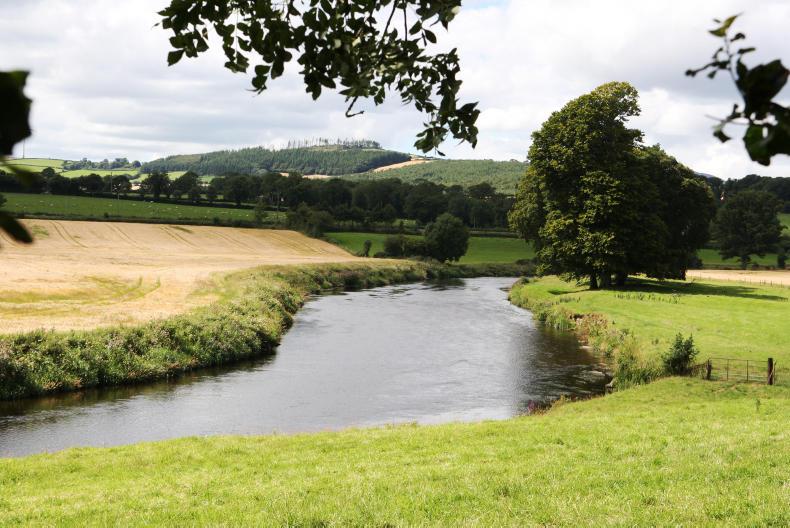The Common Agricultural Policy (CAP) is highly inefficient and falls short of addressing the most relevant challenges relating to agricultural sustainability, a new report has found.
Commissioned by the European Environmental Bureau (EEB) and BirdLife Europe, the Rapid CAP Assessment found that the CAP is highly inefficient especially with respect to environmental effects.
‘CAP is incoherent’
The CAP is also incoherent with environmental sustainable development goals (SDGs), particularly biodiversity and climate it found.
The study highlights that the mechanisms for environmental protection are there, but cannot achieve their goals due to other competing instruments in the CAP itself.
The policy in its current form poorly supports SDG 12 (responsible consumption and production) due to unsustainable consumption and production, and SDG 15 (life on land) due to exporting the high environmental footprint beyond the EU.
Finally, both socio-economic studies and environmental ones indicated sustainability issues to be critical for the successes or failures of the CAP, as well as its effectiveness, efficiency and acceptance by the public.
’Major inefficiencies’
Lead author of the study, Guy Pe’er, said that the available evidence analysed so far points to major inefficiencies resulting from the lack of a coherent set of objectives, ineffective and partly conflicting instruments and poor uptake of knowledge.
“We also identified very poor relevance of the objectives themselves, and that both farmers and the public are unsatisfied with the CAP and its outcomes.
“While the design and implementation of CAP instruments fails to meet current sustainability challenges, the good news is that the knowledge and tools needed to move towards a better and smarter CAP are available. What’s needed now is the political will to use them.”
Hogan: we must strive to do more
Meanwhile, speaking at a Birdlife Europe event on Thursday 11 May, which coincided with the release of the preliminary results of study, the European Commission for Agriculture and Rural Development Phil Hogan gave his backing to the CAP.
“Thanks to this policy, we have achieved food security, the highest global standards for safe and quality food, minimum standards for the environment, sustainable rural development and modernisation of European agricultural practices.
“These are just a few examples to demonstrate the policy’s achievements.
“But we must always strive to do more, and the CAP needs to step up to the plate and help to deliver on our ambitious international agreements, such as the SDGs and the Paris agreement on climate change.
“In order to make this happen, we need to mandate our farmers to perform a variety of important tasks for the benefit of our society, and our planet.”
MEPs want more flexibility for agriculture under climate targets
Macron’s EU: market-focused CAP and hard Brexit
The Common Agricultural Policy (CAP) is highly inefficient and falls short of addressing the most relevant challenges relating to agricultural sustainability, a new report has found.
Commissioned by the European Environmental Bureau (EEB) and BirdLife Europe, the Rapid CAP Assessment found that the CAP is highly inefficient especially with respect to environmental effects.
‘CAP is incoherent’
The CAP is also incoherent with environmental sustainable development goals (SDGs), particularly biodiversity and climate it found.
The study highlights that the mechanisms for environmental protection are there, but cannot achieve their goals due to other competing instruments in the CAP itself.
The policy in its current form poorly supports SDG 12 (responsible consumption and production) due to unsustainable consumption and production, and SDG 15 (life on land) due to exporting the high environmental footprint beyond the EU.
Finally, both socio-economic studies and environmental ones indicated sustainability issues to be critical for the successes or failures of the CAP, as well as its effectiveness, efficiency and acceptance by the public.
’Major inefficiencies’
Lead author of the study, Guy Pe’er, said that the available evidence analysed so far points to major inefficiencies resulting from the lack of a coherent set of objectives, ineffective and partly conflicting instruments and poor uptake of knowledge.
“We also identified very poor relevance of the objectives themselves, and that both farmers and the public are unsatisfied with the CAP and its outcomes.
“While the design and implementation of CAP instruments fails to meet current sustainability challenges, the good news is that the knowledge and tools needed to move towards a better and smarter CAP are available. What’s needed now is the political will to use them.”
Hogan: we must strive to do more
Meanwhile, speaking at a Birdlife Europe event on Thursday 11 May, which coincided with the release of the preliminary results of study, the European Commission for Agriculture and Rural Development Phil Hogan gave his backing to the CAP.
“Thanks to this policy, we have achieved food security, the highest global standards for safe and quality food, minimum standards for the environment, sustainable rural development and modernisation of European agricultural practices.
“These are just a few examples to demonstrate the policy’s achievements.
“But we must always strive to do more, and the CAP needs to step up to the plate and help to deliver on our ambitious international agreements, such as the SDGs and the Paris agreement on climate change.
“In order to make this happen, we need to mandate our farmers to perform a variety of important tasks for the benefit of our society, and our planet.”
MEPs want more flexibility for agriculture under climate targets
Macron’s EU: market-focused CAP and hard Brexit







 This is a subscriber-only article
This is a subscriber-only article





SHARING OPTIONS: